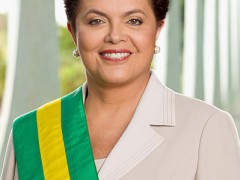How many women employers are there in Brazil?
The following article deals with the topic “Implementing Board Diversity,” which will be discussed at the Global Economic Symposium in Rio this October. The author intends to enrich the discussion at the symposium with her personal stories and ideas.
Last time I checked, men and women were equals. Or, they were supposed to be. Different bodies but same rights. Right?
In that regard, “In July 2010, the United Nations General Assembly created UN Women, the United Nations Entity for Gender Equality and the Empowerment of Women. In doing so, UN Member States took an historic step in accelerating the Organization’s goals on gender equality and the empowerment of women.”
Ah, just so you know, the executive director of UN Women is a woman. Her name is Michelle Bachelet, and she was the first female president of Chile.
193 countries agreed with UN Women — including China, Congo and even Cambodia. And Brazil, of course.
What are the focus areas of UN Women?
- Violence against Women
- Peace and Security
- Leadership and Participation
- Economic Empowerment
- National Planning and Budgeting
- Human Rights
- Millennium Development Goals
Here, you have to be on the same page as I am: if women need a special UN entity, it means women do need help.
I can’t and won’t describe what the other 192 countries are doing with respect to gender equality. However, it would be interesting to see what my country has been doing, right?
Before that, let’s establish some important information about Brazil and women:
- In 2011, for the first time, a woman was elected to the presidency. Her name is Dilma Rousseff.
- According to data from the Brazilian Institute of Geography and Statistics, in 2008, Brazil had 97.5 million women (51.3% of the total population).
- In 2003, the Secretariat of Policies for Women was created, which focuses on establishing public policies that contribute to improving the lives of all Brazilian women.
 Source: Agência Brasil (Creative Commons)
Source: Agência Brasil (Creative Commons)
Now we have some information to compare: we can see that the 193 countries, including Brazil, not only have to be concerned about women’s issues, but they have laws and rules that have to be followed.
That leads me to the next question: is Dilma Rousseff’s country implementing board diversity?
Now, I will let you decide. If images say more than words, I’ll use a graphic that uses both. (To see the full report in Portuguese, click here.)
Source: Secretaria de Políticas para Mulheres (Creative Commons)
You don’t have to speak Portuguese to understand it. Can you see the orange column, showing 2,8? It means that only 2.8% of women are employers. And 66.0% are employees.
My personal opinion: Brazil is known for having one of the best laws about the environment. The problem? We are bad at following it. We are bad in practice. The same goes for women: we have great laws (have you heard of Lei Maria da Penha?), but we are lacking in implementation.


